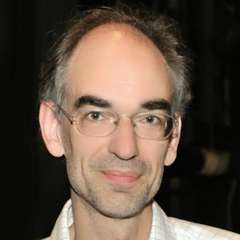The Czech music scene has plenty of reasons for celebration in 2024. The Czech Philharmonic was founded 130 years ago and this is the 2024 Year of Czech Music, a festive tradition that began a hundred years ago, honouring Czech composers in every year ending with a four. A healthy dose of national pride is quite a heartening thing to witness in a world of predictable globalisation. And what better way is there to celebrate Czech music than with an all-Dvořák programme brought by the Czech Philharmonic under their chief conductor Semyon Bychkov? Touring Europe, they made a single and long-overdue stop at Antwerp’s Queen Elisabeth Hall.
It’s somewhat late in the year for Carnival, but Dvořák’s Carnival Overture was nonetheless a splendid curtain-raiser. Bychkov started in an almost leisurely fashion. He slightly toned down tempo and volume at first, allowing every orchestral detail to bloom before gradually building up the excitement for the fiery finale. A lovely feeling of nostalgia pervaded the hall in the meditative central Andante con moto. The dialogue between solo violin and woodwinds preparing Dvořák’s gentle reference to nature by the clarinet (in the shape of his own In Nature’s Realm written at the same time) were ravishingly played. It’s such passages that remind us why we love Dvořák.
There were plenty more in the Symphony no. 9 in E minor, “From the New World”. With the Czech Philharmonic, it’s above all a question of how they honour their historical association with the work today. Judging from this performance, they still do so in the most glowing terms. Their highly spirited approach overruled all fear of routine. The sonority of the orchestra remains something to behold. Individual sections competed in character and flavour, while the layering of the different desks in even the loudest passages was perfectly transparent. This is also a credit to Bychkov, and with such a fine-tuned balance no detail was obscured.
Entirely Bychkov’s doing was the dosage of the tempi. For the most part he let the music flow naturally without histrionics or cheap effects. In the Largo he kept with a rather brisk tempo his musicians on edge. The cor anglais solo, beautiful as it was, was still surpassed by the astonishing strings. Dvořák himself played the viola and he obviously knew how to let this instrument shine in an orchestra. The passage where Dvořák shifts momentarily to an almost chamber music ensemble was pure magic. And who wouldn’t be impressed by the unique colouring of the brass which plays such a prominent role in this symphony – or indeed in every work of this evening?
Dvořák’s Piano concerto in G minor may be a tough nut to crack, yet Bertrand Chamayou is the latest in a line of pianists who convincingly demonstrate what a compelling piece it is. The French pianist also returned to the often maligned original version of the concerto, negotiating the piano part with seemingly effortless ease (though we know it is anything but easy) and reinvigorating its volatile moods with his impressive range of touch and colour.
Bychkov made sure not to drown out his soloist and the outer movements were tightly held together by a seamless exchange of give and take. Chamayou’s talents as a chamber musician were obvious in the attractive Andante sostenuto flirting briefly with Chopin-like romanticism, while the final movement informed by Slavic dance rhythms and joyful energy fully confirmed what a consummate artist he is.
No Dvořák concert is complete without at least one of his Slavonic Dances. Bychkov gratified the rapturous ovation with the Furiant, the first from the Op.48 set. Brilliant!
It took the Czech Philharmonic 86 years to revisit Antwerp. Surely they need not wait that long to return.




